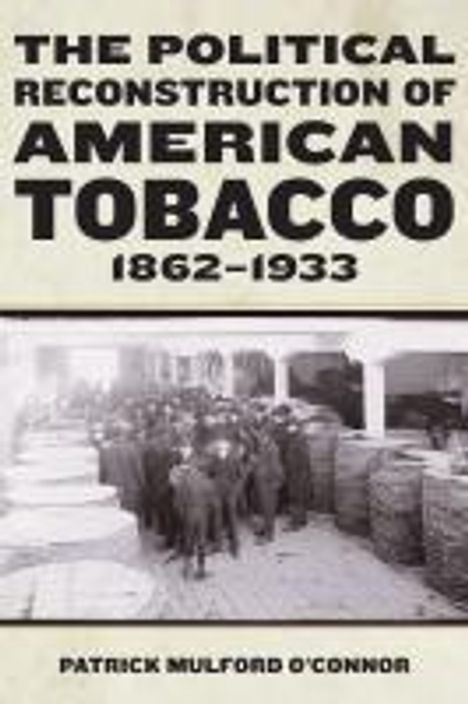Patrick Mulford O'Connor: The Political Reconstruction of American Tobacco, 1862-1933, Gebunden
The Political Reconstruction of American Tobacco, 1862-1933
(soweit verfügbar beim Lieferanten)
- Verlag:
- Fordham University Press, 06/2025
- Einband:
- Gebunden
- Sprache:
- Englisch
- ISBN-13:
- 9781531510589
- Artikelnummer:
- 12039715
- Umfang:
- 240 Seiten
- Ausgabe:
- New
- Gewicht:
- 467 g
- Maße:
- 229 x 152 mm
- Stärke:
- 18 mm
- Erscheinungstermin:
- 3.6.2025
- Hinweis
-
Achtung: Artikel ist nicht in deutscher Sprache!
Weitere Ausgaben von The Political Reconstruction of American Tobacco, 1862-1933 |
Preis |
|---|---|
| Buch, Kartoniert / Broschiert, Englisch | EUR 44,20* |
Klappentext
A deeply researched and clearly argued account of the mutual growth of the federal government and the modern tobacco
Nearly everything about the United States tobacco economy changed in the generation following the American Civil War. From labor to consumption, manufacturing to regulation, tobacco was utterly reconstructed, "comparatively a new industry," as one contemporary wrote.
The Political Reconstruction of American Tobacco, 1862 -1933 exposes the causes of these changes, and in the process, it reconsiders cornerstones of the American national narrative. Through a detailed rendering of tobacco's late-nineteenth-century political economy, this book argues that the federal state's and American capitalism's development were mutually constitutive-and fundamentally political-processes. From the Civil War to the Progressive Era, diverse political movements across tobacco's commodity chain drove state and market development, creating the immense power and stifling poverty that defined tobacco's reconstruction. The Political Reconstruction of American Tobacco, 1862 -1933 emphasizes the significance of the thousands of manufacturers whose interest groups shaped federal tax policy and, in turn, forged a powerful and effective internal revenue system; the increasingly influential fertilizer producers and warehouse operators who determined tobacco's value; and the crop scientists who sought to promote and rationalize US tobacco production. As these actors reshaped tobacco's commodity chain, they missed, and even dismissed, the interests of tobacco growers, especially newly emancipated African Americans and smallholding whites throughout the South.
The ruling logic of tobacco's reconstructed political economy rationalized agrarian indebtedness, justified low prices, and intensified labor discipline on thousands of small farms. In emphasizing these exclusions, The Political Reconstruction of American Tobacco, 1862 -1933reveals how nineteenth-century state and economic development coincided with and even created rural poverty.

